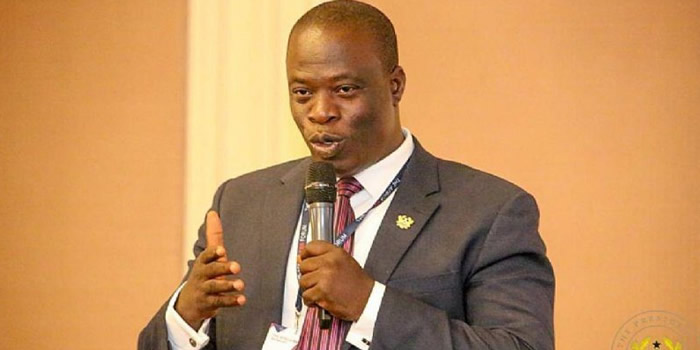Adverts
SOCIAL
Government, partners working to deal with all forms of child labour
Mr. Ignatius Baffour Awuah, Minister for Employment, Labour Relations and Pensions, says government is working with stakeholders to upscale the Child Labour Free Zone (CLFZ) initiative to deal with all forms of child labour.

Date Created : 3/3/2023 12:00:00 AM : Story Author : Albert Oppong-Ansah/Ghanadistricts.
He said the CLFZ initiative, had been designed to enhance national efforts towards reducing to insignificant levels, incidence of child labour in localities over a specific period of time.
Mr. Awuah, who was speaking at the opening of a three-day meeting of experts and Ministers of Labour and Employment from the ECOWAS region, said a pilot of CLFZ in some communities had been successful.
With funding from the International Labour Organisation (ILO), the meeting sought to determine and approve the ECOWAS’s plan of action for the elimination of child labour and force work in West Africa.
Mr. Awuah explained: “Sometimes if you go into communities seeking to halt child labour in a particular area like plantain cultivation, the labour migrates to another sector like small scale mining or fishing. The CLFZ addresses the issues in all sectors.”
He said as part of the initiative, the successful communities would be certified as “child labour free” by experts.
“This certification will be crucial for communities that supply raw materials for export in the sense that they will gain the status of child labour free community,” he added.
The Minister said child labour was a social issue and Ghana was developing a hazardous activity framework to distinguish task labelled as child labour and child work.
“It is dangerous to categorise all forms of work as child labour and we need to be careful about this. This is because some tasks for children are meant to mentor children to take over a particular vocation, ” he said.
Studies have shown that the majority of cocoa farmers were above 40 years, which experts project might have an effect on cocoa production.
Mr. Awuah urged the experts to find a strategy to ensure that agriculture, one of the largest employers in the region, was sustained to be the number one sector that attracted export earnings.
Ms. Vanessa Phala, the Director of International Labour Organisation, Country Office for Ghana, commended Ghana for undertaking a number of initiatives towards eliminating child labour, including the adoption of hazardous framework.
“The work that has gone into the implementation of the convention throughout all levels is commendable. We now have hazardous activities framework that has been finalised, which will provide clearer guidance the activities that is prohibited for child labour and how to deal with such issues,” she said.
Ms. Phala said the sub-region needed to harmonise activities, compile data and monitor country implementation of child labour related projects to be able to know the impact.
She said the last global report on child labour released by ILO and UNICEF indicated that the number of children in child labour had risen to 160 million worldwide - an increase of 8.4 million children compared with the last report - with millions more at risk due to the impacts of the COVID-19 pandemic.
The agriculture sector accounts for 70 per cent of children in child labour (112 million) followed by 20 per cent in services (31.4 million) and 10 per cent in industry (16.5 million).

